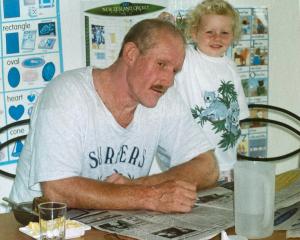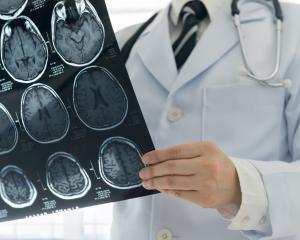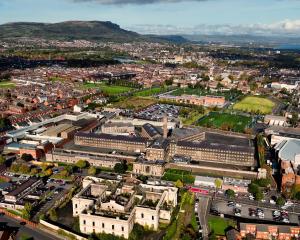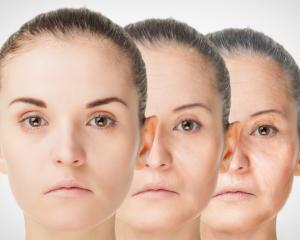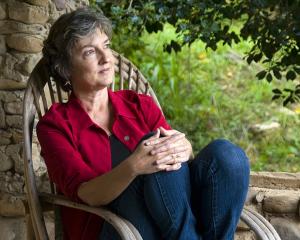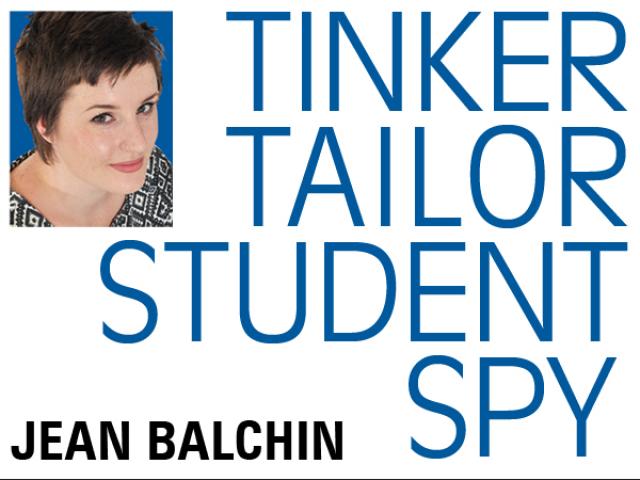
My flesh, my bones, my blood, have expanded over the past 24 years, into a shape I once thought was horrific, but now hardly mind. I once loathed myself for the livid purple stretch marks that wound their way over my thighs and hips like river deltas, my unmarked skin pale islands between the streams.
I would hide from the cameras, and hide from the world under baggy sweatshirts and long skirts.
And yet, for the most part, I'm now happy in my appearance. That is to say, I no longer wake up each morning at 5am and drag myself out of bed to run and swim for hours on end, until I'm faint and tired.
I no longer obsessively count calories and punish myself for swallowing a handful of chocolate buttons. I try to walk or cycle daily, to eat healthily, but I also enjoy the odd glass of wine or three, and I no longer pinch at my skin and sink into despair every time I see a mirror.
If anyone mentions the words ''anorexia'', ''bulimia'' or ''eating disorder'', most people probably think of a skinny, eerily beautiful white girl - the sort of girl who struts down catwalks, or is portrayed by Lily Collins in Netflix dramas. And to an extent, I once fitted that image. I took pride in the way my hipbones jutted out.
My anorexia started from a compulsive desire to control something - and as a 12-year-old undergoing strange and curious bodily changes, my food intake was the simplest thing to regulate and restrict.
I painstakingly copied down the nutritional information of every morsel of food I consumed in a pink sparkly notebook, feeling a rising sense of pride as the numbers on the bathroom scale dwindled week by week. But then when I was 18 and my eating disorder resurfaced, I looked and acted differently.
I no longer resembled a waif, and I was complimented on my muscles and apparent athleticism. I worked out, I succeeded at judo, and I always had a smile on my face. Even though I was still eating only a few apples one day, bingeing on chocolate and crisps the next, and fainting in the corridors of my hall of residence, I did not look like the image of an eating disorder so often fed to us by the media.
The truth is, eating disorders take on many forms, manifesting in a variety of ways, and on a spectrum of severity from anorexia to bulimia, to binge-eating, to other eating disorders without a name. But the voices of those people, overwhelmingly women and non-binary folk who suffer most, are typically excluded. Already dealing with poverty and social exclusion, their lifelong disability of an eating disorder is simply ignored or unrecognised.
These working-class women, often women of colour, are marginalised further and palpably absent from medical and social discussions of eating disorders. Approximately 1.7 % of the New Zealand population will suffer from an eating disorder during their lifetime and out of that portion one third will have anorexia. It breaks my heart that as many as one in four teenage girls may suffer from the symptoms of an eating disorder.
The process of healing from anorexia, or any other eating disorder is just as stigmatised and trivialised as the illness itself. I have lost count of the number of stories of eating disorders in movies, soaps and chick-lit that depict recovery as a continuous uphill journey one scraped-clean plate at a time. But for most people recuperating from an eating disorder, recovery is sporadic and unpredictable, like riding a rollercoaster blindfold. It has been five years since I began to recover from my last intense period of anorexia, but during these five years I have relapsed, binge-eaten, vomited and cried.
But I have also begun to forgive myself. I have rediscovered the joy of sharing a KitKat with a friend and the sheer exhilaration of speeding down a hill on an eight-speed bike, the wind in my face.
Shortly after my 18th birthday, a loved one began to display indicators of an eating disorder. Watching this girl shrink into herself filled me with dread - I knew the horrid, insidious thoughts consuming her. But I was able to blanket her with compassion and help her through the ups and downs of recovery. Please, please talk to a medical professional if you suspect yourself, or a loved one has any type of eating disorder.
Don't ever make someone ashamed for the food they consume or the painful spirals their mind is travelling through. Don't invalidate anyone's illness, or mock their pain, anxiety and frustration.
I can't speak for everyone, but I know Christmas is a particularly difficult time for anyone dealing with, or recovering from an eating disorder. Don't shame anyone for a second helping of Christmas pudding, and don't talk loudly about the number of calories in a slice of cold turkey. You never know who might be listening.
-Jean Balchin is an English student at the University of Otago, and was awarded a Rhodes Scholarship to study at Oxford University.
Where to get help
Healthline: 0800 611 116
Lifeline Aotearoa: 0800 543 354
Suicide Crisis Helpline: 0508 828 865 (0508 TAUTOKO)
Samaritans: 0800 726 666
Alcohol Drug Helpline: 0800 787 797
General mental health inquiries: 0800 44 33 66
The Depression Helpline: 0800 111 757


